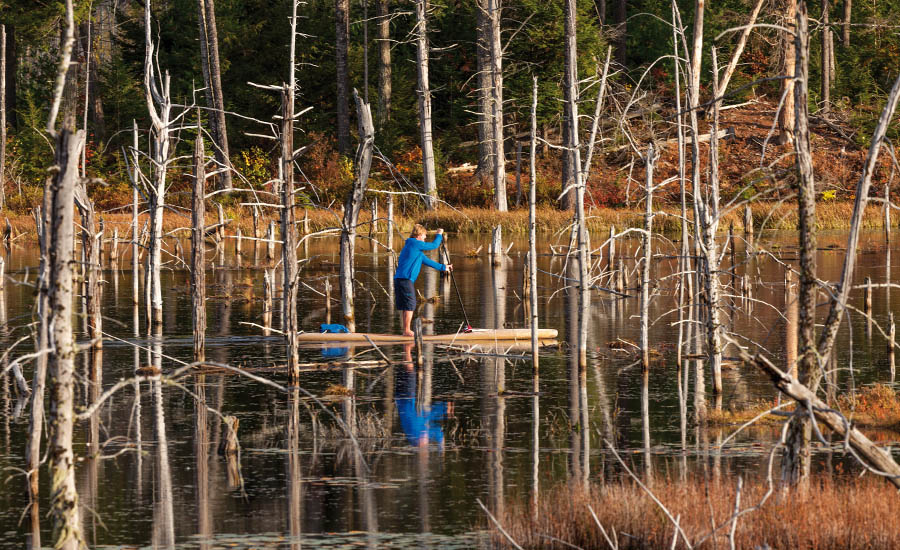Let’s admit it, while the outdoor community is green orientated, the outdoor and paddlesports industry have a negative impact on the environment, mostly because there are few known ways to avoid using toxic and environmentally harmful products during production. However, more companies are looking into new ways to produce goods, while decreasing their impact on the environment. One must question: Is this for real or just effective marketing and propaganda? We asked Benoit Treguilly from BIC Sports his view on that phenomenon.
Founded in 1979 by the Bich family, BIC Sport grew from a passion for watersports and an expertise in manufacturing. With the family’s dedication to human-powered watersports came a desire to implement sustainable manufacturing processes in order to preserve the environment in which these products are used. These efforts include minimizing energy use wherever possible, zero gas emissions or pollutants from the factory, and recycling of manufacturing by-products wherever possible.
BIC has received numerous awards for their efforts to implement a system wide sustainable manufacturing process. In 2015, Eurosima awarded BIC Sport the Gold Ecoride label, with a jury panel made up of independent environmental and economic experts who reviewed the application of the company with a 70-question application. This Gold label certifies the highest level of commitment in the following three fields: sustainable management, eco design and supplier evaluation, and CSR (Corporate Social Responsibility policies/actions).
While BIC is proud of these accomplishments in process, they also recognize that similar investigations need to be made on the materials with which the boards are made in order to further reduce environmental impacts. The result is BIC’s new range of products: EARTH – Deep into Nature. EARTH – Deep into Nature is BIC’s commitment to stay true to their ethos and continually strive to do better, featuring bio-sourced, renewable and/ or recyclable materials.
Production of EARTH – Deep into Nature products feature the following materials, replacing materials traditionally used while retaining or enhancing technical qualities:
Flax Fiber Sheets – rail reinforcement/strength (replaces Fiberglass sheets); Paulownia Wood – the primary material used in the board’s sandwich construction (replaces PVC foam); Cork – non-slip deck pad material (replaces EVA foam).
At BIC, we understand that the materials and processes used to build Earth boards are not fully sustainable. We still use polystyrene as the foam core material, which is the industry standard and may well be fully recyclable, but it is not perfect. We also continue to use epoxy resins because our efforts to test and source bio-resins has yet to achieve the quality and performance characteristics that would allow us to use them. Our team continually monitors the progress made with these and other bio-sourced materials, so we can incorporate them into our manufacturing process as soon as feasible.
The search for a more sustainably sourced and produced range of watersports products remains a journey, not a destination.
By: Benoit Treguilly, Bic Sports Communication/ Marketing Director


